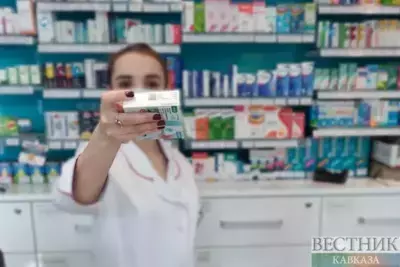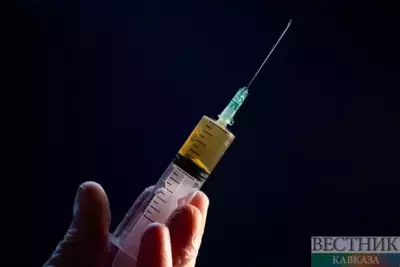Tribune’s guest is a member of the Social Policy Committee of the Federation Council, the senator of the Orel region Vladimir Krugly.
- Today we are discussing the quality of pharmaceutical products. What does the GMP standard mean?
- It is an international standard for the production of pharmaceuticals — Good Management Practice — that is, it is a series of specific production conditions required to ensure that drugs produced are of high quality. These are the conditions for production. Moreover, they are international. However, there are some differences between the European GMP and the Russian GMP, or the US GMP and so on. But these differences are insignificant.
If certain medicine is manufactured in accordance with this standard, it corresponds in quality to those essential requirements that apply to given medicine. If medicine is not manufactured according to the GMP standard, this raises a lot of questions about its quality.
- Do Russian pharmaceutical products meet GMP?
- Yes, they do. But it is very important to understand what Russian pharmaceuticals are about. For example, there is a very large plant of the Sanofi company in the Orel region, which produces a lot of pharmaceutical products. But the most important is insulin, which is produced in ampules under Sanofi brand. A lot of people use this medicine. Is it a Russian or French medicine? Of course it is Russian. That is, if it is manufactured on the territory of the Russian Federation, according to our laws, it is Russian medicine. This is a very important point. The substance is currently imported from Germany, the same company exports the substance to Russia, but almost the entire production is carried out in Orel. This means the labor force, taxes and so on. Therefore, the medicine is considered to be produced in Russia. Even if it's prepackaged, nowadays it is considered to be a Russian produce. However, recently the requirements are being toughened towards making the whole production [in one country].
There was a notorious government decree, № 1289, which stated that foreign pharmaceutical could not be subject to public procurement. Four months have already passed since the decision entered into force, but there are no changes in the market. There were many concerns that Russian people are being deprived of quality imported goods. It's not true. The purpose of this decision, is to stimulate localization of production in Russia. That is, the Russian market is attractive for large pharmaceutical companies. And this decree, which is popularly called the 'third wheel', meaning that if there are two Russian analogues, then the third, which is imported, is not allowed. This is an additional motivation, an incentive for large pharmaceutical companies to localize production on our territory.
- Can our domestic medicine be sold abroad?
- They can be sold, and they are sold. That is, the same insulin, which has both Russian and European GMP certificates, is sold in Europe. It's a European quality medicine.
However, in accordance with the Russian legislation, all pharmaceutical manufacturers had to start using the GMP production standard starting January 1s, 2014. In reality, the situation is not as good as we would like. To date, in total 98 companies have such a certificate, which is issued by a special department of the Healthcare and Social Development Federal Agency (Roszdravnadzor), and it should monitor compliance with this standard over time. And this standard applies to both a particular certificate, and the production process.
In Europe for example, a lot of enterprises lose their certificates every year. There are special GMP inspectors who monitor the compliance with their rules. There is no such experience in Russia. If you have received the certificate, it is considered that your production corresponds to a set of rules. This question, of course, is about monitoring and control.
- So do these 98 producers have the right to supply their products to the overseas markets?
- Some companies indeed deliver overseas. For example, the BIOCAD company delivers medicine to Europe. The process is slow, because current situation does not contribute to a distribution of Russian pharmaceutical products to the European market. Moreover there are other markets that Russian companies are trying to access. Maybe not as fast as we would like it to be, but this process is under way.
Changes in the pharmaceutical industry in our country are very intense and rapid. Since the time when I worked as a doctor, the quality of Russian products has improved dramatically. Pharmaceuticals have become much more effective and comparable to foreign products. I’m talking, for example, about colon-stimulating drugs, and even antibiotics. The quality of Russian medicines is growing; and both citizens and doctors are changing their attitude towards them. There used to be a strong belief that if medicine is made in Switzerland it would be by definition better than its Russian analogue. Frankly speaking, this belief has gone in recent years. The Pharma 2020 program, which is being carried out now in the Ministry, stimulates not only the production of generic medicine, but also the production and registration of completely new Russian innovative medicine. By the way, during a recent meeting with a representative of the Skolkovo Foundation, scientists proposed projects to create new drugs. That was a high level discussion. I couldn’t imagine that the new medicine against cancer is being developed in our country today at such a high level. And the Skolkovo Foundation works in accordance with international standards. Independent experts from Russia and Europe conduct external expertise analysis of the work on equal basis. The head of the biological cluster of the Skolkovo Foundation recently delivered a speech [which demonstrated] an excellent level of both scientific and applied research.
















